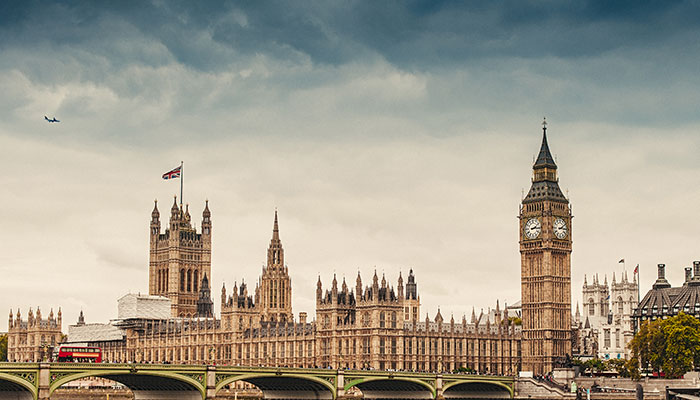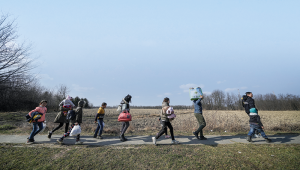
Image © iStock
Government should be seamless. A large number of people only emotionally connect with public services in times of need: calling the police, going to hospital and bin collections.
There’s one point when public services enter everyone’s minds: when something goes very, very wrong.
It’s moments like the winter blizzards when streets are dangerous, the NHS crisis or other major civil emergencies.
The Public Accounts Committee chair Meg Hillier’s annual report, published today, has used the Covid-19 lockdown as an inflection point, because it was the biggest national incident since the Second World War.
But the message from the report is that the crisis exposed the multiple weaknesses within government – not least the lack of expertise.
The report depressingly echoes too much of the 2007 inquiry findings into the devastating floods that came close to destroying multiple communities.
Flood defences had been designed on the basis of “an event with an annual one in 100 chance of occurring”.
And then came that ‘one’ exceptional event.
The result was that 13 people lost their lives, approximately 48,000 households and nearly 7,300 businesses were flooded and billions of pounds of damage was caused.
The inquiry that followed raised concerns over readiness, data collection, information sharing, how agencies worked with each other and learning from other countries.
What’s changed since? The PAC report lays bare the fact that the central government machine, which still retains control on most of the key decisions, is lacking in experienced people and those people don’t have detailed information to make emergency decisions.
In a major incident, public sector organisations switch to their civil contingency plans.
The ‘book’ for the situation they face is structured according to the Civil Contingency Act 2004.
The problem is that the Cabinet Office hasn’t meaningfully updated it, according to key organisations.
The British Red Cross provides support for disaster victims and is regularly used for work such as tracing missing people or providing emergency shelter. Other Third Sector organisations are brought in to take the weight off Blue Light services.
They aren’t included in the legislation and have to bid offers of help early in a crisis – and it depends on whether the incident lead gets the message.
It’s not just them. Missing persons search teams are run by volunteers – and they say their biggest challenge has been the increase in people with dementia who get lost.
Police and Crime Commissioners were created after the legislation and there are now devolved mayors.
PCCs were not in the gold command book and were locked out of key discussions during Covid-19. That left Chief Constables dealing with issues that were political, causing a point of friction at a critical moment.
The PAC report’s core warning is that Whitehall increasingly doesn’t have people who know how to react. They can do process but aren’t equipped to deal with outcomes.
The most alarming element of the report is the warning over biosecurity which essentially is DEFRA’s responsibility. As is flooding which has an increasing risk due to the climate emergency.
The risk and cost are increasingly landing with the public sector - as other countries are finding out.
Just this week, some US insurers warned they were not prepared to cover properties in California because of the almost-certain chance of natural disaster.
If nothing else, updating the Civil Contingency Act will strengthen the response public sector agencies are able to give. The overhaul should be an opportunity to audit critical services across the departments and local government. It’s badly needed.
The NHS winter crisis has shown how public services are at the limit.
More evidence of this will come over the next two years at the Covid-19 inquiry. And later this year, the Grenfell Inquiry will deliver its devastating findings.
In reality, the issues raised in 2007 and by this PAC report will be repeated in both sets of findings.
Ministerial statements traditionally pledge that “lessons must be learnt”. Even on this the PAC is clear that Whitehall’s departments aren’t able to do this.
Prevention is better than cure. That’s the outcome of something that didn’t happen and isn’t noticed by the public. Seamless, not seen.
Read Meg Hillier’s piece for PF: Times of crisis need more transparency, not less











